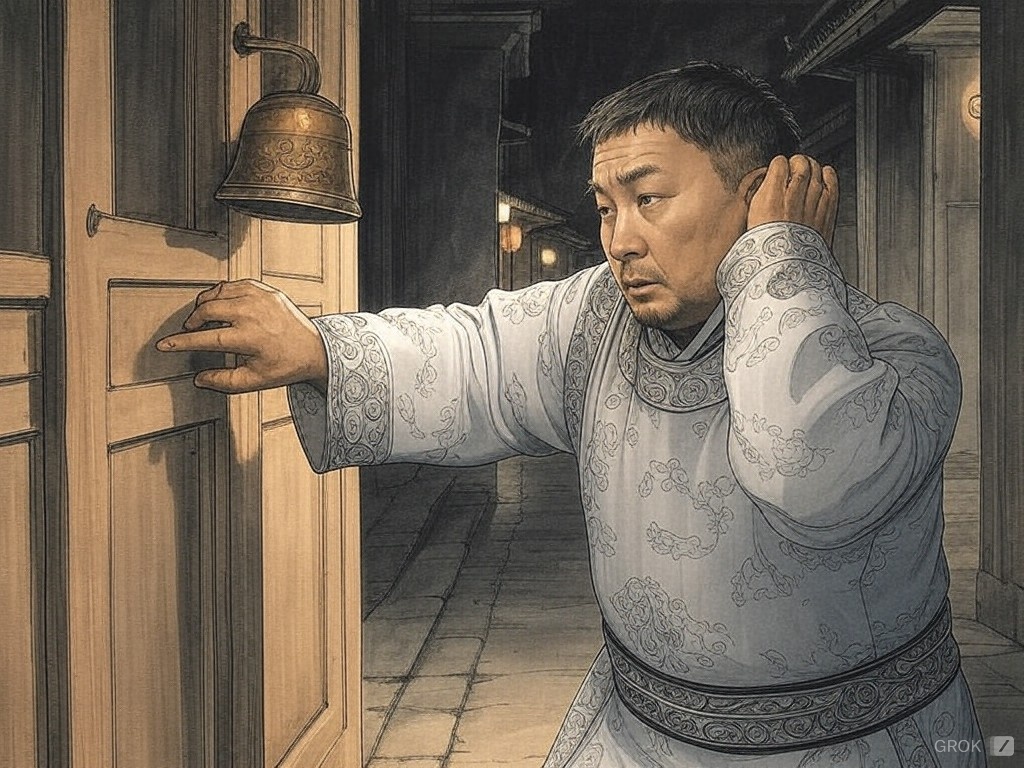"掩耳盗铃" (yǎn ěr dào líng) - Covering One's Ears While Stealing a Bell

To cover one's ears while stealing a bell; to deceive oneself; to bury one's head in the sand.
Origins and Historical Context
The idiom "掩耳盗铃" (yǎn ěr dào líng) originates from the Lüshi Chunqiu (吕氏春秋), a classic Chinese text compiled around 239 BC. The story is found in the chapter "Self-Knowledge" (Zizhi 自知).
The story goes: A man wanted to steal a bell. He knew that the bell would make a loud noise when struck. So, he covered his own ears, thinking that if he couldn't hear the sound, no one else could either. He then proceeded to steal the bell, obviously failing in his attempt.
This story illustrates the absurdity of trying to deceive others by deceiving oneself.
Meaning and Usage
"掩耳盗铃" literally translates to "cover ears steal bell." It means to deceive oneself in a foolish attempt to deceive others. It describes actions that are obviously self-defeating and illogical.
-
Example (Ignoring obvious problems): “他明明知道公司经营出现了问题,却视而不见,掩耳盗铃,最终导致了更大的损失。” (“Tā míngmíng zhīdào gōngsī jīngyíng chūxiàn le wèntí, què shì ér bù jiàn, yǎn ěr dào líng, zuìzhōng dǎozhì le gèng dà de sǔnshī.”) – “He clearly knew that there were problems with the company’s operations, but he chose to ignore them, deceiving himself, which ultimately led to even greater losses.”
-
Example (Pretending a problem doesn't exist): “面对考试的压力,他不去复习,反而整天玩游戏,真是掩耳盗铃。” (“Miàn duì kǎoshì de yālì, tā bù qù fùxí, fǎn ér zhěng tiān wán yóuxì, zhēnshi yǎn ěr dào líng.”) – “Faced with the pressure of exams, instead of studying, he plays games all day. He is truly deceiving himself.”
Cultural Significance of Chéngyǔ (成语)
"掩耳盗铃" serves as a cautionary tale, emphasizing the importance of:
- Facing Reality: It warns against the dangers of self-deception and ignoring problems.
- Honesty and Integrity: It promotes the value of being honest with oneself and others.
Synonyms and Related Concepts
- 自欺欺人 (zì qī qī rén): To deceive oneself as well as others.
- 弄巧成拙 (nòng qiǎo chéng zhuō): To try to be clever and end up making a fool of oneself.